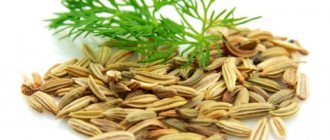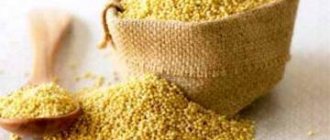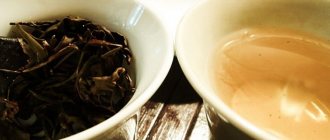Cystitis is one of the most common urological diseases, affecting between 25.5 and 36 million people annually. At the same time, women get sick three times more often than men. If the disease is not treated, there is a risk of chronic cystitis, the spread of infection with the development of inflammation in the kidneys and urethra. A quick cure for cystitis and restoration of the bladder mucosa is possible only with timely and comprehensive therapy.
The chances of completely getting rid of cystitis increase if you supplement antibacterial therapy with traditional medicine recipes. Dill and its seeds show good results in treating the bladder. The plant has anti-inflammatory, analgesic, antispasmodic, and antimicrobial effects. In the article below we will tell you how dill is useful for cystitis, how to prepare the medicine, treatment features, contraindications.
What are the benefits of dill and its seeds for cystitis?
Thanks to a unique set of minerals and vitamins, dill and its fruits are ideal for treating acute cystitis and preventing new relapses. The chemical composition of each part of the plant is different.
Greens contain high amounts of beta-carotene (4.5 mg) and retinol (750 mcg). Beta-carotene is a powerful antioxidant that prevents the effects of free radicals on the urinary and reproductive systems. Retinol increases the protection of mucous membranes from genitourinary infections, restores and supports epithelial tissue, and takes part in the formation of new cells.
An important role in the treatment of cystitis is played by vitamin C (ascorbic acid), contained in the dill herb. It has an antiallergic effect, inhibits inflammation, strengthens the immune system, and increases the body's sensitivity to the action of pathogens.
Vitamin E suppresses inflammation activity. Dill seeds for cystitis have a diuretic effect, maintain muscle tone, reduce the intensity of pain when urinating, ease muscle spasms, and cause dilation of blood vessels, which helps blood flow more freely.
Operating principle
Dill and its fruits act on the principle of an antibiotic - they destroy pathogens that have penetrated the bladder and caused inflammation of the mucous membrane. They inhibit the progression of inflammation, which reduces the likelihood of chronic cystitis.
For treatment, it is important to use a folk remedy as an addition to drug therapy. When used correctly, greens and dill seeds reduce the need for antibacterial drugs, shorten recovery time, and serve as a prevention of complications after bladder treatment.
Important ! During treatment, it is necessary to adjust the diet: exclude fatty, spicy foods from the diet, increase the daily fluid intake, and avoid hypothermia.
How to prepare dill seeds to treat bladder problems
To treat and prevent cystitis at home, you can prepare an infusion, decoction and dill water from the herbs and fruits of dill. It is better to use dill from your own harvest, grown without the addition of pesticides. In summer, fresh dill and seeds are used, at other times - dried.
The seeds are collected when they begin to ripen - from July to September. The inflorescences along with the fruits are cut off, formed into bunches, placed upside down in a paper bag, and left for 7-10 days in a dry place, avoiding direct sunlight. Dry seeds are easily separated from the stems. Greens and seeds are stored in a clean glass container under a lid.
Advice . To prepare the medicine, you can buy dill seeds at the pharmacy. They are available without a prescription.
Infusion
To prepare the infusion, you need to pour 1 tsp into a glass container. dill fruits, pour a glass of hot water, cover and leave for 30-40 minutes to infuse. Strain the cooled broth through gauze folded in several layers or a sieve. Drink 2 tbsp before meals. l. at intervals of 3-4 times a day. The course of treatment is 7-10 days.
Decoction
A decoction is prepared from dill seeds with the addition of birch buds and chamomile inflorescences. To do this, mix 1 tsp. each herbal component, pour 200 ml of boiling water, leave covered for half an hour. Take the strained decoction 50-100 g orally between meals, but not more than four times a day.
In a similar way, you can prepare a decoction based on dill seeds and herbs. Grind the stems and fruits of the plant separately in a coffee grinder, measure 1 tsp each, mix, pour 250 ml of boiling water. Place in a water bath. The mixture should simmer for 15 minutes. Every day, drink 200 ml of strained broth throughout the day, dividing into small portions.
Dill water
Here are two recipes for preparing dill water to treat cystitis:
- Grind 1 tbsp. l. dill fruits in a coffee grinder, pour 1 liter of cold water, put in a water bath, after boiling, cook for another 20 minutes . Strain the cooled broth through several layers of gauze.
- 1 tbsp. l. Grind the dill fruits into powder, pour in 1 liter of hot water. Leave covered for an hour, then strain. You don’t have to grind the seeds, then the infusion time should be increased by 15-25 minutes.
Take 2-3 tbsp of dill water. l. every 3 hours. The course of treatment is 10-14 days. After a break, repeat treatment if necessary.
This is interesting:
Let's learn how to make dill oil at home.
Areas of application for dill umbrellas.
Infusion of dill seeds for cystitis
Dill infusion has a diuretic effect, which will improve bladder rinsing and reduce the risk of urinary stagnation and the spread of infection. It is not difficult to prepare the infusion - place 1 tsp in a container with a lid. dill seeds, pour 250 ml of boiling water and leave to steam for 15 minutes. The strained infusion is drunk before meals, 2 tbsp. You need to take the medicine 4-5 times a day. The course lasts 2-3 weeks, depending on the stage of the disease.
In addition to the infusion, you can treat cystitis with dill in powder form. Dill seeds are ground in a coffee grinder and consumed 0.5 tsp. 3 times a day, washing down the powder with warm water. The same powder is suitable for preparing an infusion - crushed seeds are steamed with boiling water in a ratio of 1:20 and infused for 30 minutes. Take 100 ml infusion 3 times a day. You can also take dill infusion - 1 tsp. dill seed powder pour 250 ml of boiling water and leave for 1 hour. The resulting infusion is drunk immediately on an empty stomach in the morning.
How to use
The regimen and course of treatment for the bladder with infusion or decoction of dill is determined taking into account the severity of symptoms, the use of basic medications, and the body’s response to therapeutic procedures. On average, it takes 7-14 days to achieve a positive result. It is necessary to follow the preparation recipe and not violate the dosage.
Advice . To eliminate the risk of an allergic reaction and other possible complications, it is necessary to start treatment with small doses, gradually increasing them to those specified in the prescription.
Features of treatment for women and men
There are no differences in the use of dill to treat cystitis in men and women. Regardless of age and gender, a decoction or infusion of dill is taken orally or added to the bath while bathing.
But during pregnancy, expectant mothers can replace antibacterial therapy with dill decoction in the treatment of cystitis, but only after consulting a doctor.
Can it be used for children
Cystitis mainly affects adults. Dill and its seeds can be used in the treatment of children and only in combination with medications and after agreement with the attending physician.
The optimal recipe is dill water. It is allowed even for newborns. Mothers often give it to their children when they have increased gas formation. But in the case of properly selected antibiotics, dill water helps get rid of cystitis, stop inflammation, and prevent the growth and reproduction of genitourinary infections.
Methods of application
Traditional medicine knows many recipes for using dill for medicinal purposes. It can be brewed, consumed fresh, or used as a herbal infusion for a bath. The best treatment method is selected individually on the advice of the attending physician.
Decoction
There are several cooking recipes. You can use fresh dill and seeds in equal parts. All greens are suitable for use: stems and leaves. The parts of the plant are carefully crushed with a knife, and a coffee grinder is used for the seeds. Place 3 tbsp in a clean, dry enamel bowl. l. chopped greens and seeds, pour one liter of boiling water. The mixture is boiled in a water bath for 20 minutes. The resulting broth should be cooled and strained. To treat cystitis, adults are recommended to take 50 ml of the finished product 3 times a day before meals for 2 weeks.
Recommended topic:
Treatment of cystitis with folk remedies
Only crushed plant seeds can be used. To prepare the decoction 1 tbsp. l. The powder is placed in a dry enamel container and filled with 200 ml of clean cold water. Heat the mixture until it boils, then cook over very low heat for 10 minutes. The hot broth is filtered. As a therapy, it is recommended to drink 100 ml once a day before breakfast, warm.
Dill seed with honey
A simple, effective and tasty way to treat bladder inflammation. To prepare, mix 4 tbsp. l. crushed dill seeds and 4 tbsp. l. natural flower honey. The finished product should be stored in a glass container with a tight-fitting lid.
Honey mixture is taken 1 tsp. three times a day. After the portion is finished, you should take a break from treatment for 5 days. This recipe is not recommended for people who are susceptible to allergic reactions to honey and other bee products.
Powder
Therapy with dill is possible without the use of a complex recipe. For treatment, just buy a package of dill seeds and grind them into powder using a coffee grinder or pepper grinder. It is recommended to take the resulting product 1/2 teaspoon 3 times a day, washed down with warm tea or plain water.
Infusion
Not only decoctions and powder from dill seed help with cystitis. You can easily prepare a tincture that will be no less effective. Pour 1.5 tbsp into a suitable glass container. l. whole dill seeds. The plant is poured with one liter of boiling water and left for 3-4 hours in a cool, dark closet or pantry. After the specified time, you can take the finished infusion, no more than 1 liter per day.
Recommended topic:
Lingonberry for cystitis
Baths with decoction or infusion
The effect of warm water with the healing effect of herbs is widely known and has been successfully used to treat bladder inflammation in adults and children. The chemical composition of dill is perfect for use in preparing a bath for cystitis.
To prepare a sitz bath, make 5 liters of hot infusion. To do this, pour 200 g of whole dill seeds into 5 liters of boiling water and leave for 15 minutes. The resulting mixture is poured into the bath and diluted with the required amount of cool water to a temperature of 37–40 degrees.
Therapy is carried out for 15–20 minutes. Then you should thoroughly dry your body and put on warm underwear. If the bath is used to treat a child, he should be well wrapped after water procedures. To avoid the negative effects of cold and drafts, it is not recommended to go outside. It is best to take a bath before bed.
There is another way of water therapy. Baths can be taken in a small container, such as a basin. The procedure will require 1–2 liters of hot broth, depending on the total volume of water. The bath is taken while sitting, the hip area is immersed in the container.
Steam bath
The effect of hot steam can be no less effective than the warm effect of water. To prepare, you will need an appropriate container (enamel or plastic bucket), hot water from which steam, decoction or infusion of dill will come. For 6 liters of water, 2 liters of freshly brewed dill mixture is enough.
All ingredients are poured into the bucket while hot. A toilet seat is installed on top to make it more comfortable to sit. It is recommended to wrap the lower part of the body in a warm towel or blanket. Steam baths for cystitis are taken for 20 minutes. After the specified time has passed, you should wipe your body dry and put on warm underwear.
For procedures, exclusively strong containers are used. A thin plastic bucket may become deformed by hot water and the weight of the patient. In this case, there is a risk of the container tipping over and causing burns. You should be very careful when preparing treatment procedures at home.
Effective therapy includes a complex of individual methods of influencing the disease. First of all, traditional medications are used to treat cystitis. Greens, dill seeds and other folk remedies have a beneficial effect on the body and relieve unpleasant symptoms of inflammation. Therapeutic measures using folk recipes contribute to a speedy recovery.
Using dill baths
A decoction prepared from dill is taken not only internally, but also used as medicinal baths. 3 tbsp. l. seeds, pour 500 ml of boiling water, let it brew under the lid for 30-40 minutes. Strain and add to the bath while bathing. Repeat the procedure daily until complete recovery, but no more than two weeks in a row.
Contraindications
Greens and dill seeds are contraindicated in case of individual intolerance to the component(s) of the composition. Relative contraindications include low blood pressure and the presence of stones in various parts of the urinary system.
During pregnancy (especially in the third trimester) and breastfeeding, it is recommended to use a decoction or infusion of dill in the minimum effective dose. In order not to provoke complications, to exclude a threat to the life and health of the mother and unborn child, take the medicine after consulting a doctor.
Useful properties of dill
Dill is rich in many vitamins and microelements. It includes:
- vitamins A, B, C;
- mineral salt;
- essential oil;
- microelements;
- acids.
Thanks to these elements, dill actively cleanses the body of harmful bacteria and microbes and improves bladder function. In addition, the plant has the following effect on the body:
- anti-inflammatory;
- anesthetic;
- diuretic;
- disinfectant;
- strengthening.
This remedy improves the functioning of the body's circulatory system and is extremely useful for young mothers.
You should pay attention to the contraindications of this plant, for which there is no need to take dill for treatment:
- pregnancy;
- on the days of menstruation;
- with low blood pressure.
You can buy dill seeds from us
Reviews
There are different reviews about the treatment of cystitis with dill. Opinions are mostly positive. Patients who used herbal raw materials in combination with antibacterial drugs report the effectiveness of the product: the intensity of pain decreases, the act of urination is not accompanied by a burning sensation and stinging.
However, there are reports of a complete lack of effect, which can be attributed to the individual characteristics of the body, incorrectly selected antibiotics, or late start of treatment. Information about side effects is extremely rare and is associated with the use of infusion/decoction in people allergic to dill.
Tatyana Sidelnikova, 49 years old: “I often suffer from cystitis, so I have developed an ideal treatment regimen for myself - an antibiotic + dill decoction orally. It is difficult to assess the effectiveness of a specific herbal remedy, since I take it in combination with medications. But if the effect of an antibiotic develops gradually, then after taking the decoction the effect is felt within an hour or two. The number of urges decreases, there is no burning sensation when urinating, and the pain in the lower abdomen goes away.”
Marina Ivanova, 37 years old: “In my case, dill infusion turned out to be ineffective. I took an infusion of dill seeds internally for a week. The result is that the intensity of pain during urination has decreased slightly, all other symptoms remain. I sought medical help. The specialist prescribed medications. He recommended taking dill decoction after complete recovery, as a preventive measure.”
Lyudmila Kuropatkina, 51 years old: “Due to the peculiarities of my profession, I often suffer from cystitis. Each time the doctor prescribes antibiotics in combination with Cystenal. Usually improvements are noticeable after 5-7 days of treatment. The last time, on the advice of a friend, I started making dill baths from the first day of treatment. I prepared a decoction of dill seeds and herbs, strained it, and added it to the bath. The effect of the product becomes noticeable within half an hour. At night I slept peacefully, I was not bothered by pain in the lower abdomen, and the feeling of incomplete emptying of the bladder went away. Additionally, I would like to note the naturalness and low cost of the product. I recommend that anyone who has experienced cystitis take a bath with dill infusion from the first day.”









